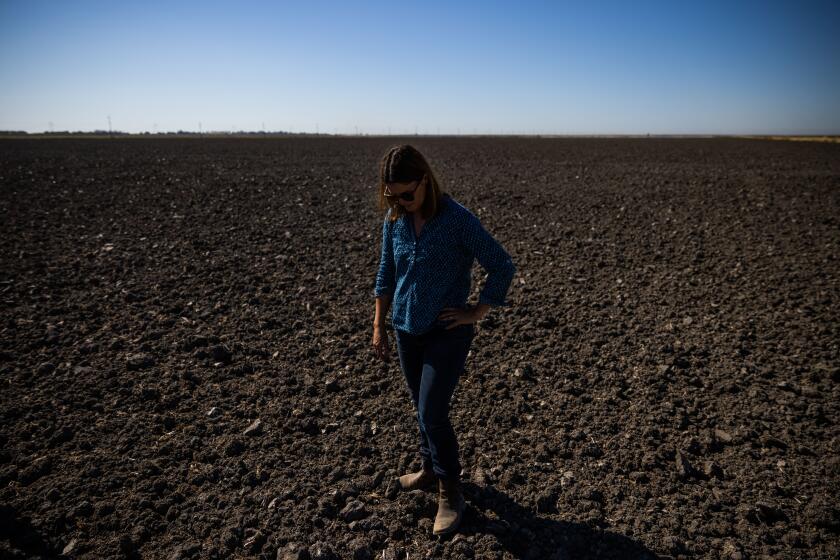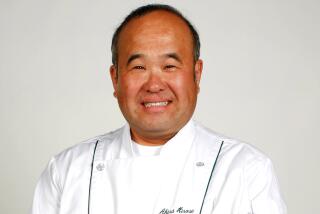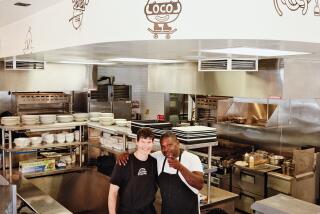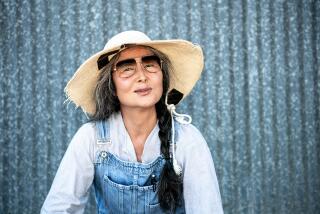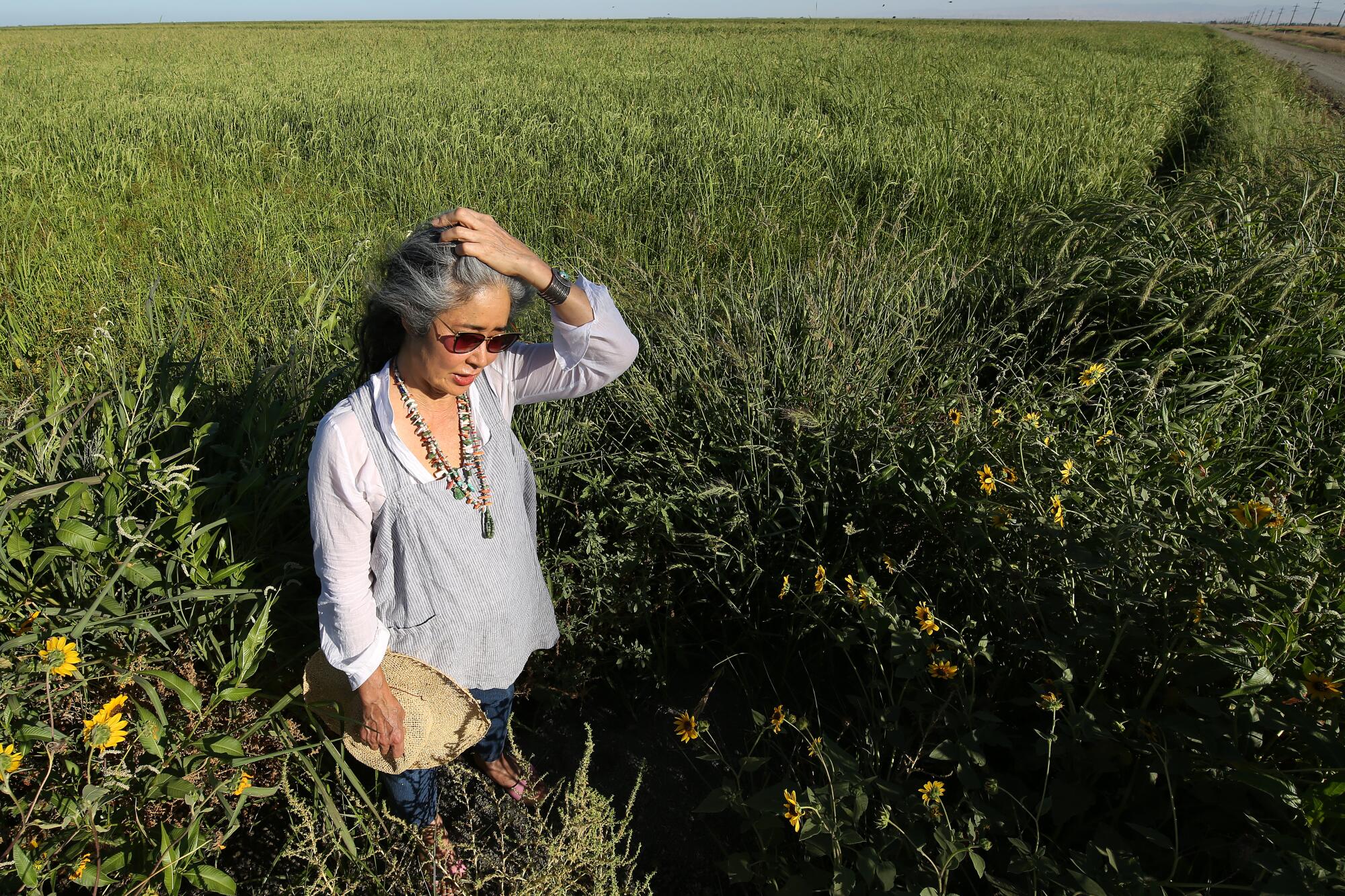
- Share via
SOUTH DOS PALOS, Calif. — For nearly 100 years Koda Farms grew some of the most beloved rice in the country in conditions far from ideal.
Its rice was a finicky crop that sprouts slow, skinny and tall, with fewer grains per bunch, and heads that can sag below the reach of the thresher and end up in the mud.
Its land lies more than 100 miles south of the Sacramento Valley, where 97% of the state’s rice crop is grown. Its soil is a clay-heavy mixture that doesn’t absorb water well, creating environmental challenges that prompted the farm’s founder, Keisaburo Koda, to pioneer a planting process in which the fields are flooded before the seeds are scattered by low-flying planes.
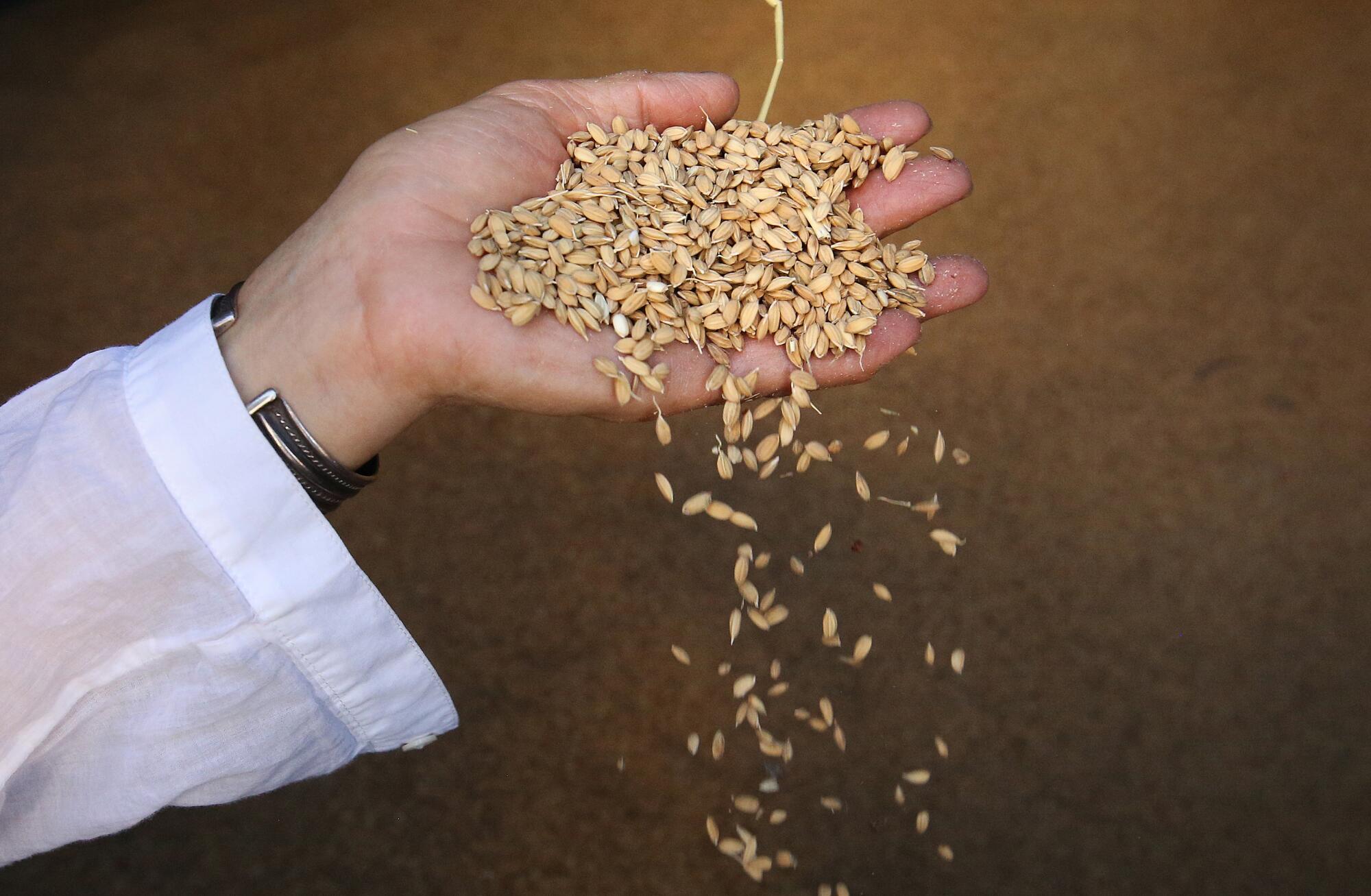
But the land’s limitations are their birthright, said Robin Koda, Keisaburo’s granddaughter, a legacy of struggles overcome. They still work the 1,000 acres that were all that was left of Keisaburo’s assets after he and his family returned from an incarceration camp after World War II. They live in a house just down the street from the rice mill he used to own, within eyeshot of the homes that were taken from them and never given back.
Koda Farms, which is winding down operations this year and licensing its trademarks to another family-run company, exists in no small part because of her grandfather’s optimism about America, Robin said. It persisted because of the family’s willingness to accept thorns to grow roses — or in this case, to grow rice, lightly sweet with a pearlescent sheen and a supple chewy texture.
“My grandfather, no matter how trod-upon or ill-treated, never lost his enthusiasm for America,” Robin said.
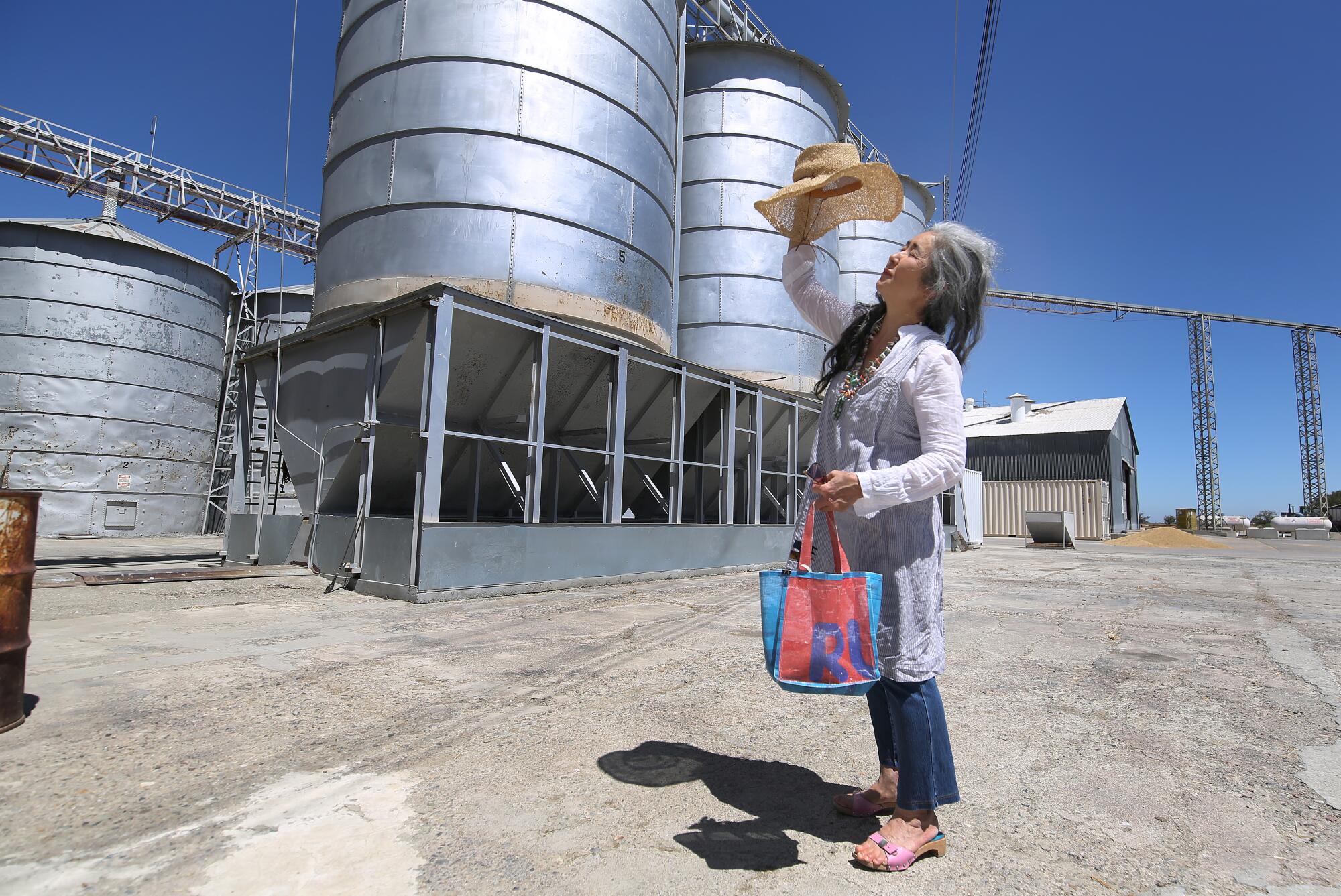
Keisaburo was born in Fukushima prefecture in 1882 to a family of samurai turned rice farmers. He worked as a school principal before immigrating to California in 1908. He was inspired by the book “Kings of Fortune,” which detailed the achievements of American businessmen such as Cornelius Vanderbilt and Eli Whitney. The preface made the following claim about the United States:
“Neither class distinctions nor social prejudices, neither differences of birth, religion, nor ideas, can prevent the man of true merit from winning the just reward of his labors in this favored land.”
At Koda Farms, rice is a delicacy. Its brown and white rice is available at the Torrance farmers markets.
Keisaburo sought success with the single-minded intensity of a second son excluded from the family business and forced to make his own way in the world. Upon arrival he launched a tuna fish cannery, sold canned produce, opened a chain of laundries in the Coalinga area, and even spent some time wildcatting for oil. He found his biggest success in rice, starting a farm with his sons Bill and Ed north of Sacramento. It became so successful that the Japanese community back then called him “the Rice King.”
Keisaburo knew Californians resented the financial success of early Asian immigrants. He gave his businesses innocuous names such as State Farming Co., North America Tuna Canning, and Golden West Canning to avoid racism and xenophobia. It’s also why his children have biblical names.
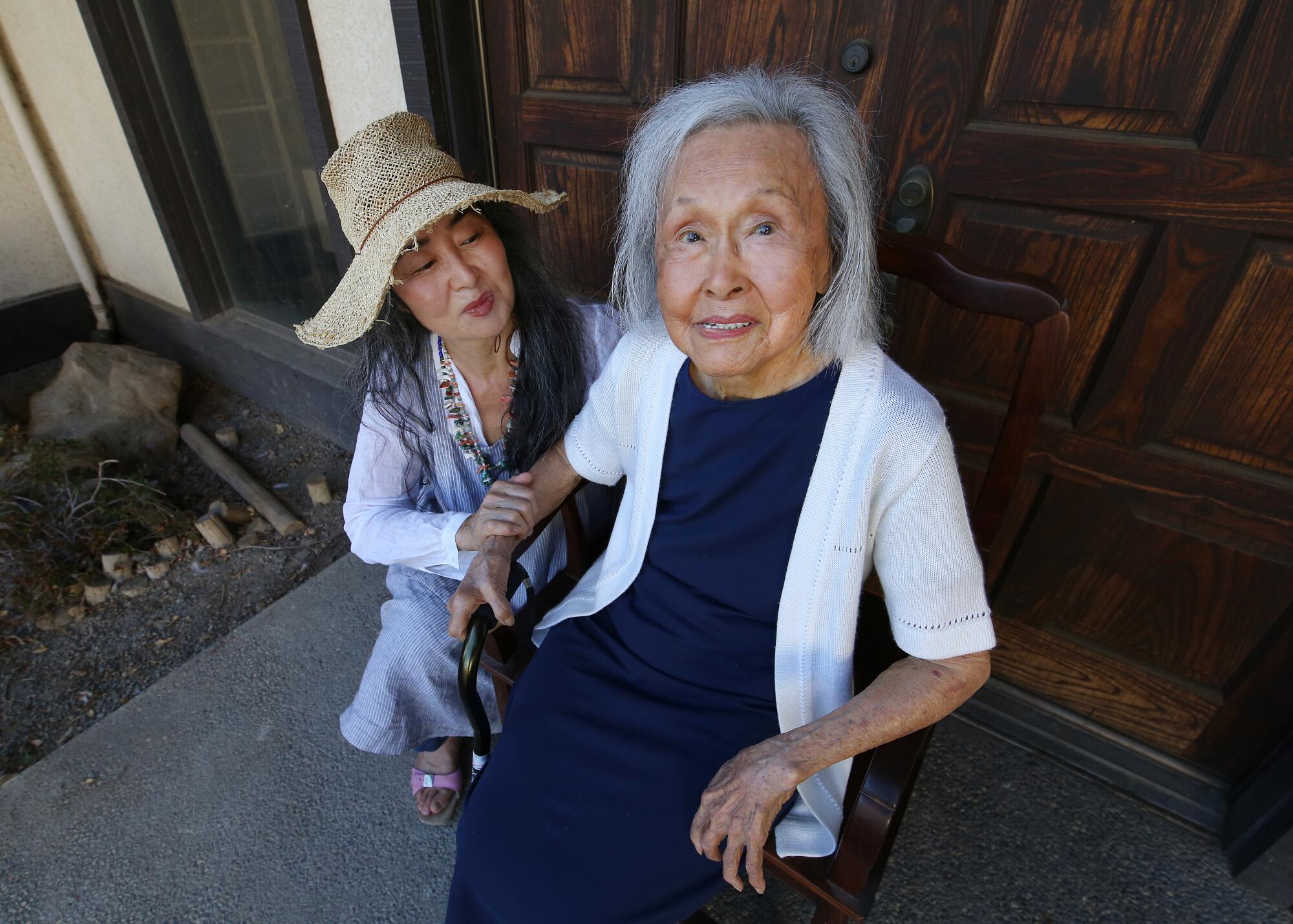
But it was all taken, one way or another, after Keisaburo and his family were forced into a Colorado incarceration camp by the U.S. government during World War II. When he came back, the only piece of his empire left was the 1,000 acres where Koda Farms stands today.
Two generations later, it’s hard to know exactly why Keisaburo rebuilt his life so close to the reminders of all that was taken from his family. But what’s evident is that Keisaburo prized his American identity and eventually became a naturalized citizen. He helped create banks, exchange programs and other institutions to help Japanese Americans rebuild their lives after war and incarceration.
He lost his assets but not his energy. After the war, he was known to drive around the state with a pressure cooker in the back of his sedan so he could demonstrate the merits of brown rice on demand. He pursued the return of his stolen assets in court until the day he died in 1964. A year after his death, the United States government settled the family’s case for just $100,000.
Robin and Ross, her brother, believe their grandfather’s decision was more pragmatic than defiant. His land was all the family had left.
“It didn’t really matter where you went. There was always going to be postwar prejudice,” Robin said.
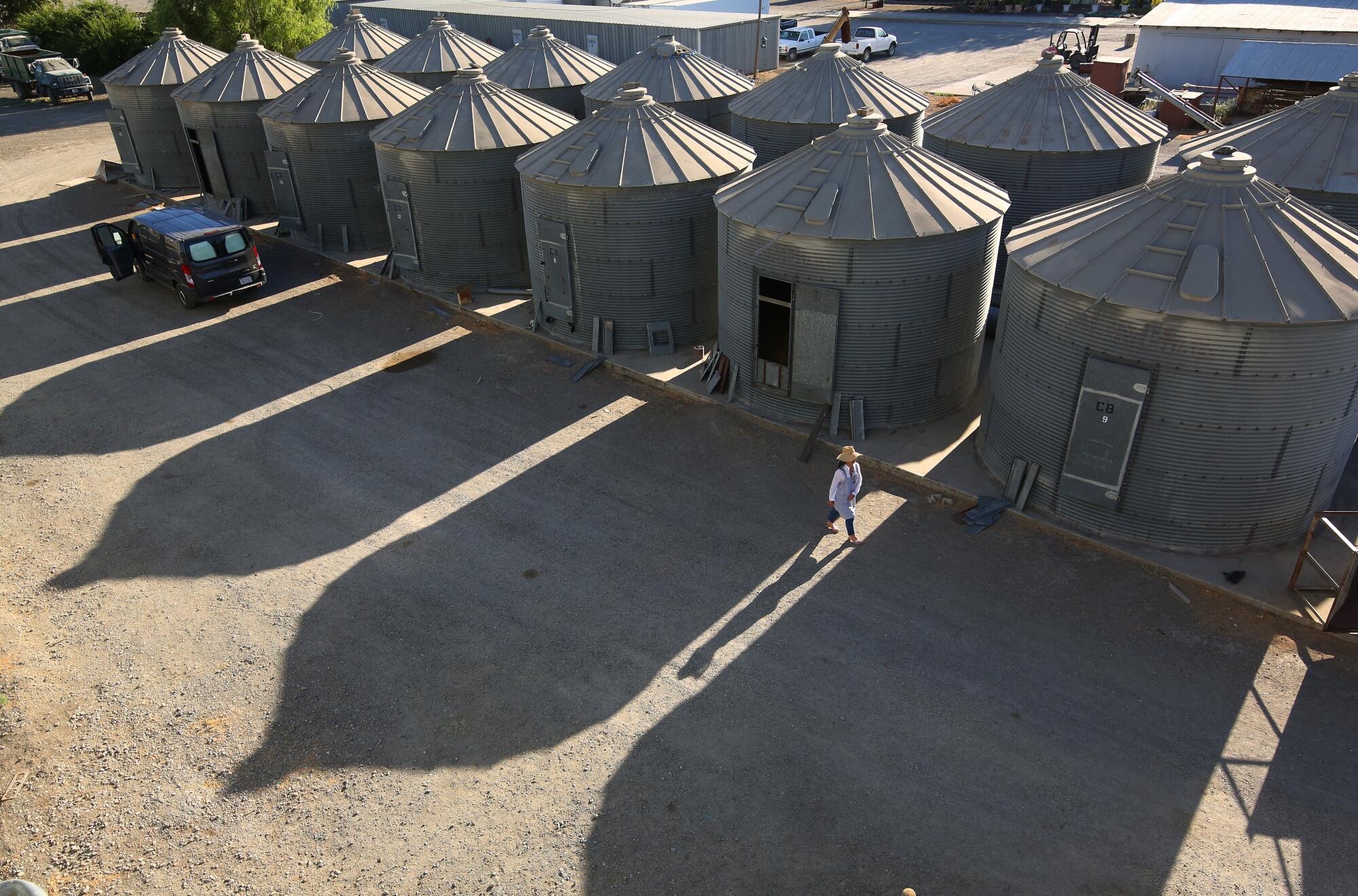
Koda Farms lies in the town of South Dos Palos, a rural outpost of fewer than 2,000 people. There is no mail delivery here, and sheriff’s deputies might take 45 minutes to show up to a call. A few years ago, Robin had to personally chase a home intruder out of her front door. She recalls emptying the clip of her handgun into the night sky and screaming at the top of her lungs. “You know, so they know a crazy lady lives here,” she explained.
They were the only Asian family in town when her grandfather moved in a century ago, and the 2020 census puts the town’s Asian population at 12. It’s a conservative, football-loving town where a lot of people grew up hunting. The company’s offices sport a large collection of mounted deer heads, many of them shot by Keisaburo. Bags of rice and barley from past quality inspections act as paperweights for stacks of files and manuals.
When Ross and Robin rejoined the business full-time in 1998, Koda Farms was an aging operation at a time of rapid modernization. Ross, the only son, faced the impossible task of matching the legacy left by his grandfather, who dominated California’s rice trade in his day.
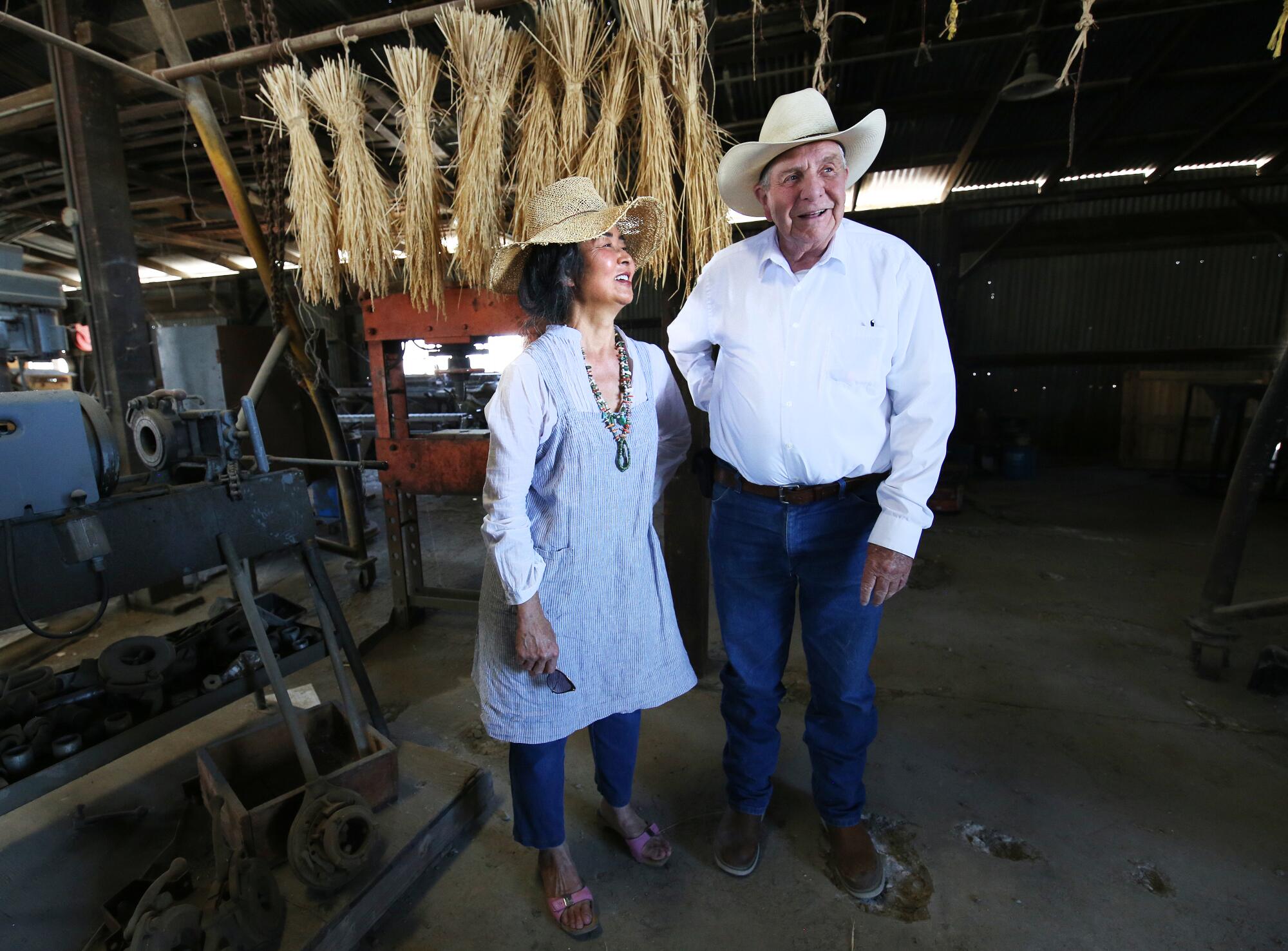
Koda was large enough to have the costs of a big farm but too small to shrug off drastic fluctuations in the price and availability of water and natural gas. The family competed with farms many times their size, operations that grew higher-yield crops in a more ideal climate. Large Japanese food distributors began to promote their own private label rice over that of Koda Farms. New regulations for food handling brought expensive equipment upgrades. Computerized inventory management meant grocery stores measure the success of a given product by turnover volume.
But Koda Farms has shipped its flour product, Mochiko Blue Star Rice Flour, in a wholesale package of 36 boxes since the 1940s, which naturally takes longer to turn over. And the box, also unchanged since the beginning, features a punch-out spout that can cause a bit of a mess. In my pantry, my own box is sealed with tape.
It’s no surprise that both siblings took some time away from the business. Ross left the farm for a few years and worked in finance in Chicago. Robin became an artist who showed her work in galleries and lived in France and Los Angeles. But in the end, the call of blood and soil was too strong.
A third year of severe drought forced California farmers to leave an estimated 752,000 acres of farmland idle this year, according to a new report.
As their ancestors had before them, they set about making the best out of a tough situation. In an age in which water efficiency had become an asset, their clay-heavy soil helped them conserve water. Ross oversaw a shift to organic farming methods. Robin’s ambassadorship of Koda Farms rice helped place it on fine dining menus across California and the nation.
But the economic and environmental realities of farming in California eventually made it too challenging to continue, Ross said. Licensing their rice trademark to Western Foods was a difficult decision, but it means the crop will continue to be grown to the family’s specifications and stay on grocery store shelves, Robin said. Western Foods Chief Executive Miguel Reyna, a Central Valley native whose parents were farm laborers, has worked with the family for nearly a decade.
“That’s how we can sleep at night, because we keep all the specifications that we produce to,” Robin said.
The family owns the trademarks in no small part because of Tama Koda, their mother, who persuaded the family to formalize their trademark licensing of Kokuho Rose and encouraged them to tell their story.
One of their early licensees was the Nomura Co., which spread their rice, Kokuho Rose, to Asian supermarkets all over the U.S.
Kokuho means “national treasure,” in Japanese. The rice’s red logo — an eight-sided mirror with a heavenly sword — looked familiar to me, so I texted a picture of the bag to my mom in Fremont.
It turns out I’ve been eating it all my life. It’s the rice we used when I was growing up in Tennessee, purchased at the small Asian grocer at the farmer’s market in Nashville.
I has assumed it was an imported product like everything else in that store. But it was an American rice, created by an American family.
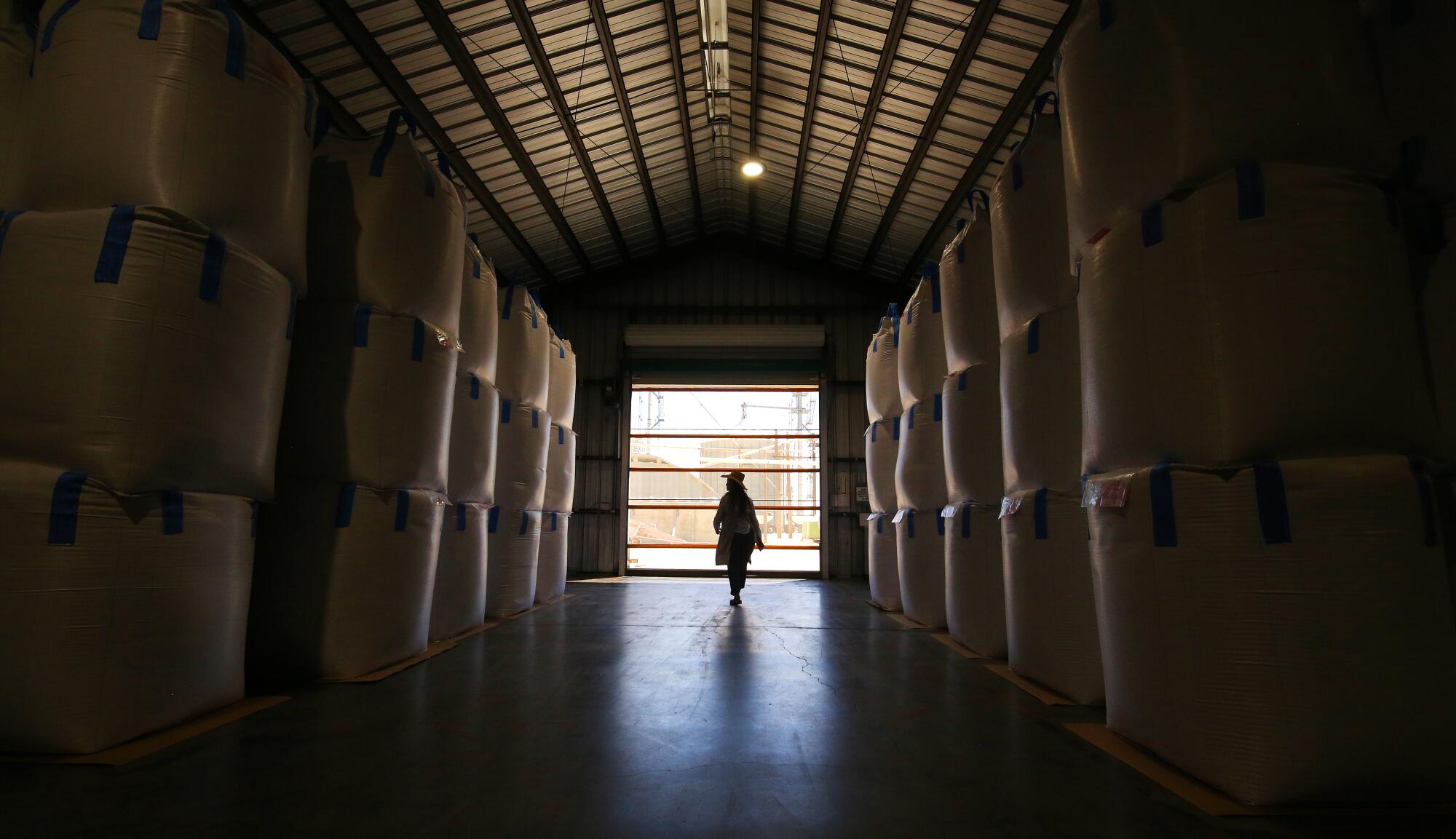
More to Read
Sign up for Essential California
The most important California stories and recommendations in your inbox every morning.
You may occasionally receive promotional content from the Los Angeles Times.
